November 9, Cuenca, Ecuador. Ten British expats were “corralled” by the recently appointed Honorary British Consul Gary Manners, to join in a Minka with the Prefectura of Azuay to help plant trees in rural Tarqui.
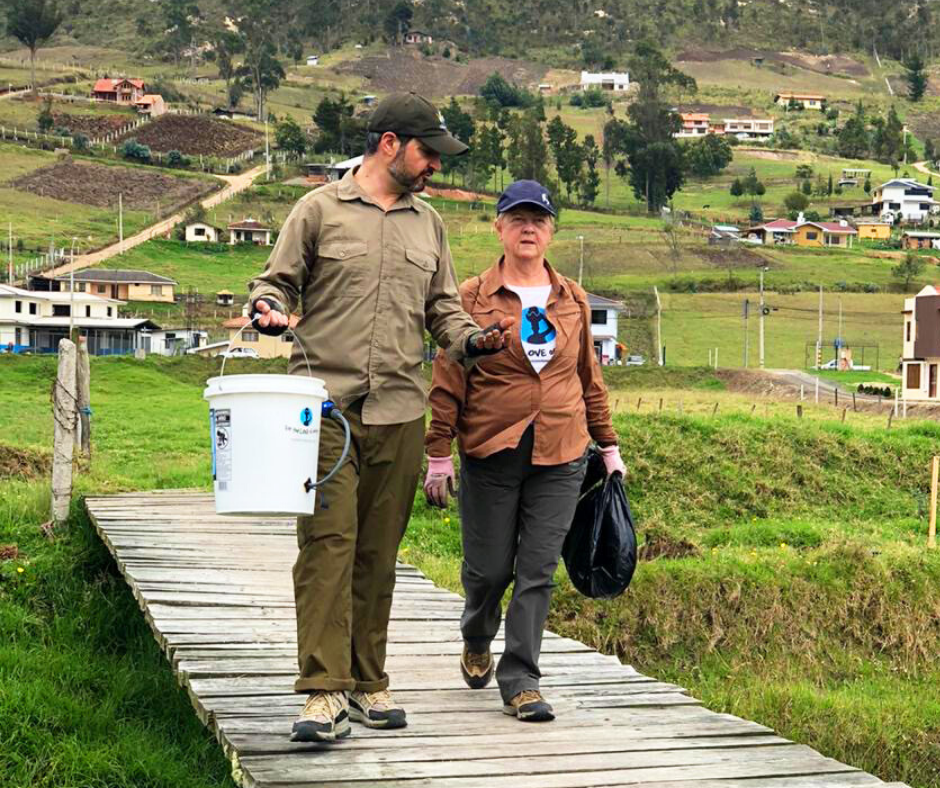
Gary and his handful of merry Brits got down and dirty, digging holes, planting trees, and shoveling dirt alongside indigenous families from the surrounding communities.
About 500 people joined Yaku Pérez, the Prefect of Azuay, also known as the Prefect of Water and Life to plant 2500 trees along the Tarqui river starting at the entrance to Tarqui to the Cumbe station (about 3 kms). The event known as a Minka, was organized by the Prefectura’s office of Environmental Management.
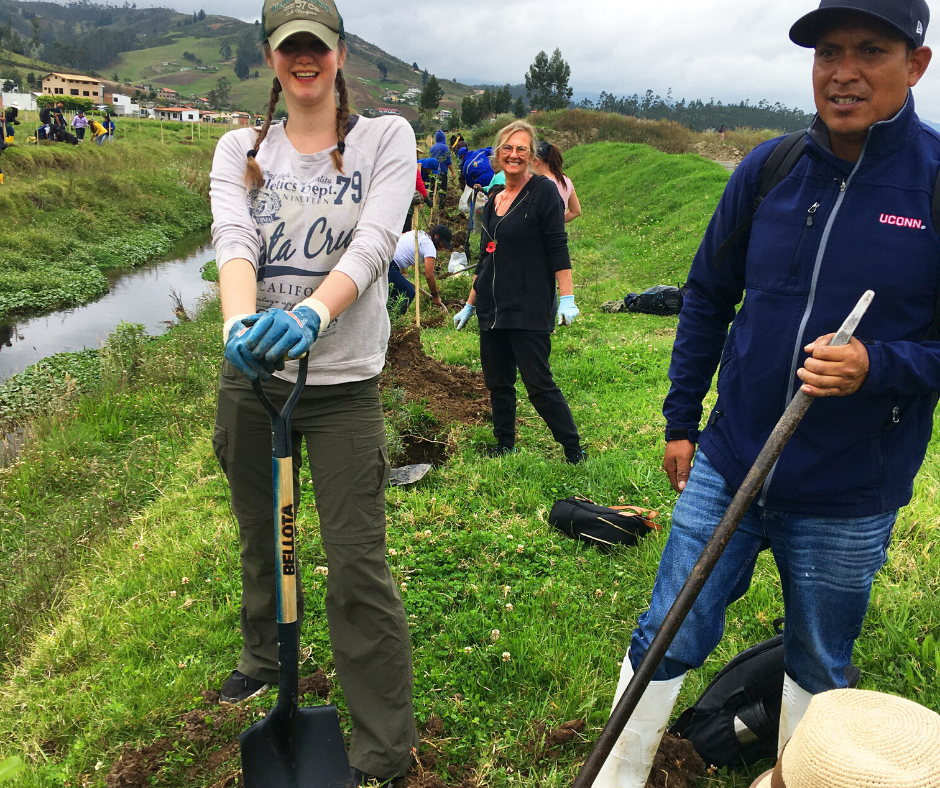
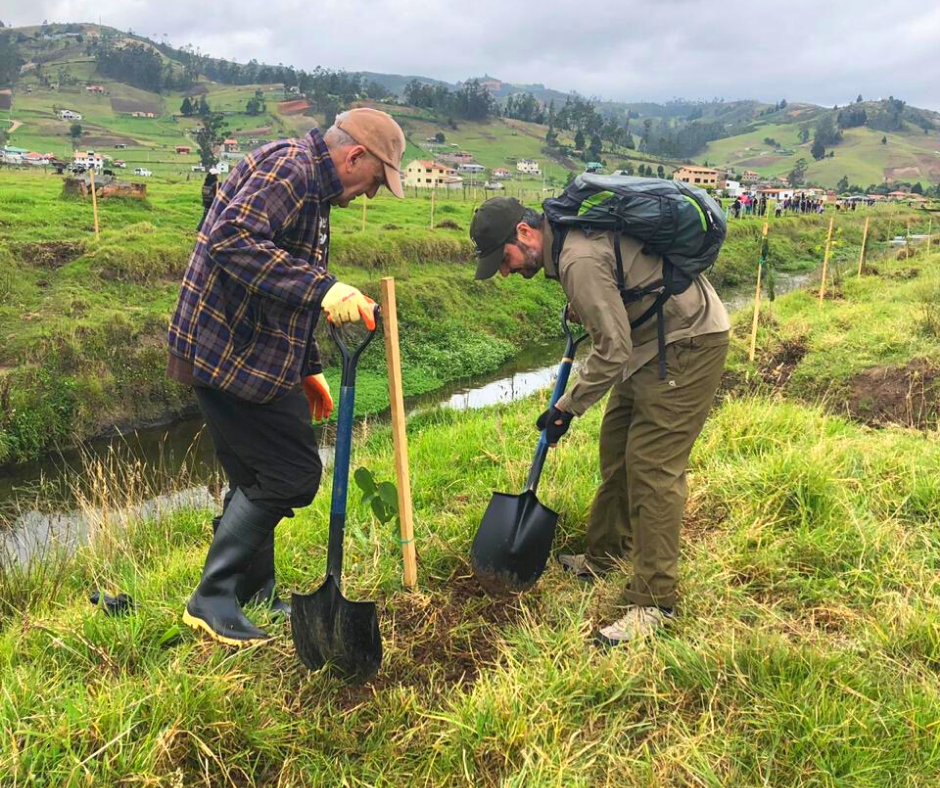
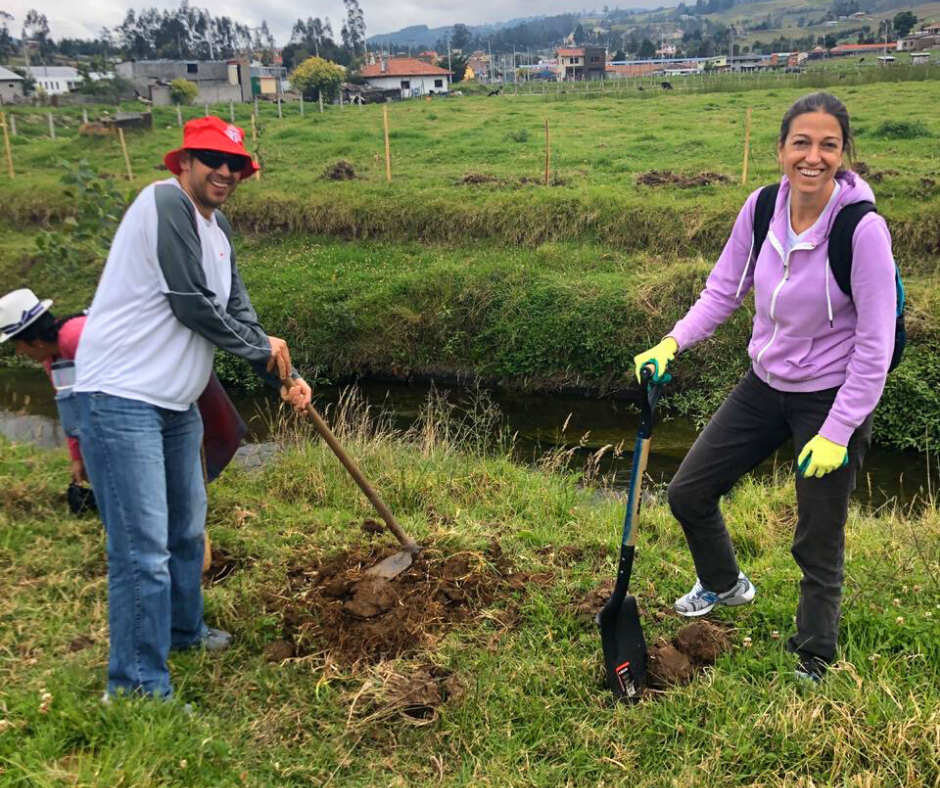
A Minka (collective work), comes from the Quechua minccacuni, meaning “asking for help by promising something.” In Spanish it’s Minga; It is an Inca or pre-Columbian tradition of community or collective voluntary work for social or reciprocal purposes.
Yaku helps with The Waterbearers demonstration by first collecting water from the river. An enthusiastic crowd watch from above and a line quickly formed to taste the water after it passed through the filter. The Sawyer PointOne filter removes 99.99999% of all bacteria, such as salmonella, cholera, leptospirosis, and E.coli, and protozoa (such as giardia and cryptosporidium), and 100% of microplastics.
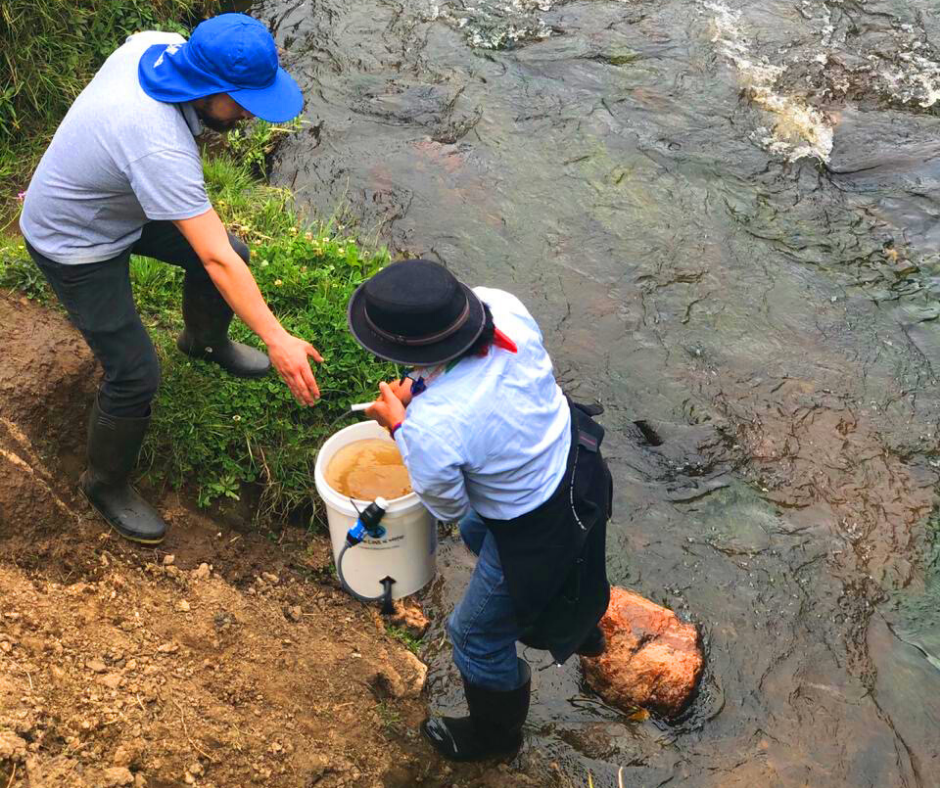
For the indigenous, this human act of giving and sharing supports each member of the community and creates a sense of belonging through the principle of reciprocity, like sharing food in a pampamesa. Pampamesa is one of the most common solidarity manifestations in the indigenous world, it is still pracaticed in rural communities and in cities in most of Latin America.
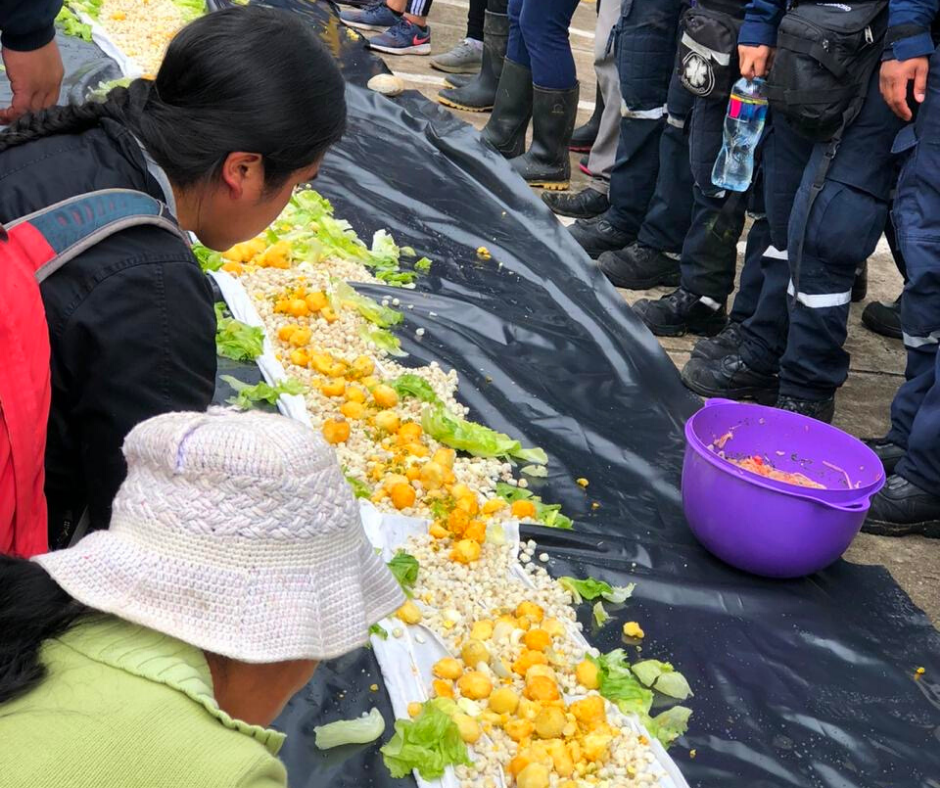
The parish of Tarqui is located 30-minutes southwest of Cuenca, and the local people are very proud of their history. The Battle of Tarqui, also known as the Battle of Portete de Tarqui, took place on 27 February 1829 at Portete de Tarqui, near Cuenca, Ecuador. It was fought between troops from Gran Colombia, commanded by Antonio José de Sucre, and Peruvian troops under José de La Mar.
“Had it not been for a handful of 1829 battlefield decisions, Cuenca could well have been a Peruvian city today. Historians say the outcome of the Battle of Portete de Tarqui could have gone either way. – Sylvan Hardy https://cuencahighlife.com/victory-at-the-battle-of-tarqui-in-1829-meant-that-cuenca-is-ecuadorian-and-not-peruvian/
Jane Brinton is Co-Founder and Executive Director of The Waterbearers

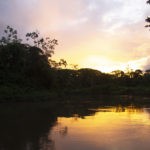
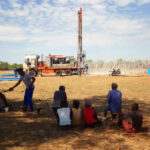
Leave a Reply